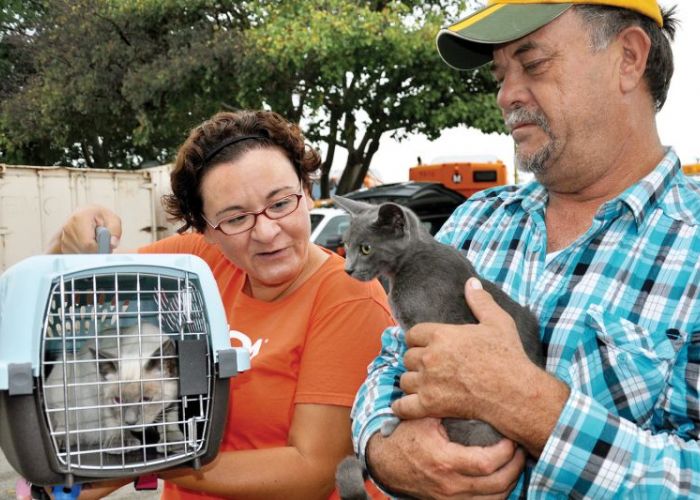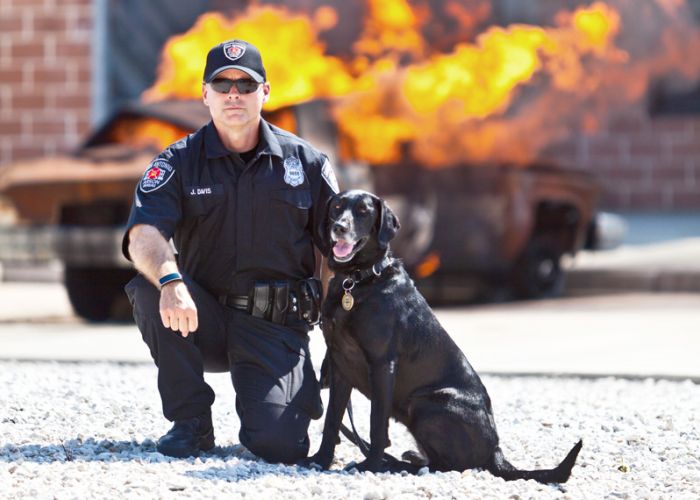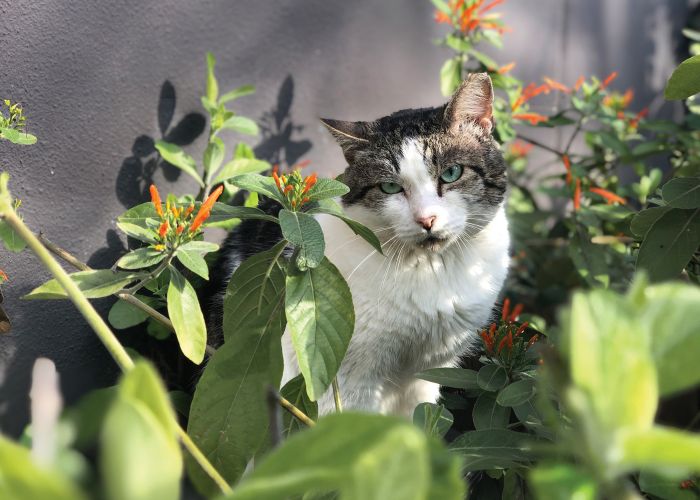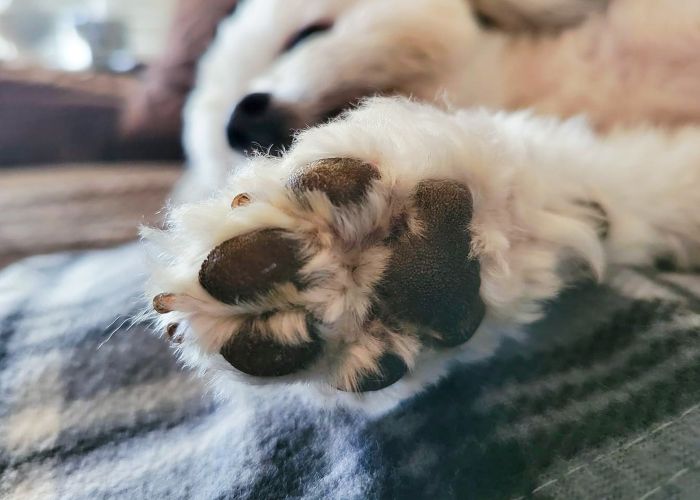Turning on the charm for people and their pets
Community outreach inspires and empowers pet owners in Baltimore
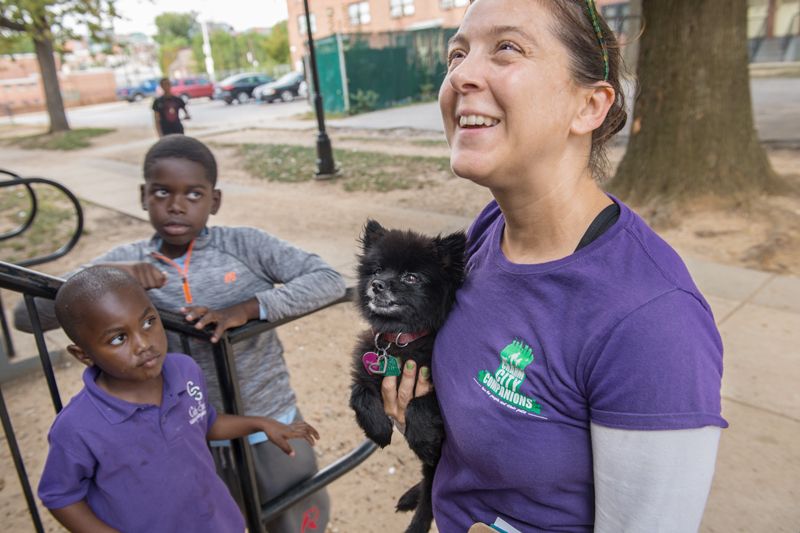
As you drive toward McElderry Park on East Monument Street in Baltimore, away from Johns Hopkins Hospital, you can see the neighborhood change, says Annie Pruitt. More buildings and signs have peeling paint, and there’s more trash on the streets. Revitalization efforts near one of the country’s best medical facilities haven’t quite made it the less than half mile to a neighborhood that struggles with high poverty, unemployment and crime rates.
Pruitt and Emily Kelley are driving this stretch on a Monday in December with Blue, a reddish-brown pit-bull-type they are dropping back home after his neuter surgery, which was facilitated by Charm City Companions (CCC), the nonprofit they founded. James Evans, a CCC board member, follows them in his own car.
Blue has some issues. When they picked him up at the spay/neuter clinic, they learned he has worms and is eating his own droppings. He’s skinny, and he seems sick after his surgery. In fact, a staff member armed Pruitt with towels because Blue looked like he might vomit in the car.
Pruitt also worries that Blue’s nails are too long, which could mean he doesn’t get walked enough. Based on her experiences in the community, Pruitt suspects some residents may not walk their dogs because they don’t own leashes or worry that their unvaccinated pets will catch parvo, she says.
Given these issues, many animal welfare groups wouldn’t want to bring Blue back to Crystal, his owner, Pruitt says, even though she has been texting Pruitt all day, asking how Blue is doing and reminding Pruitt not to forget the paperwork from the clinic.
But CCC, which provides pet care resources to people living in underserved communities, isn’t “in the rehoming business,” says Pruitt. Instead, they’ll work with Blue’s owner and “figure out what’s going on.”
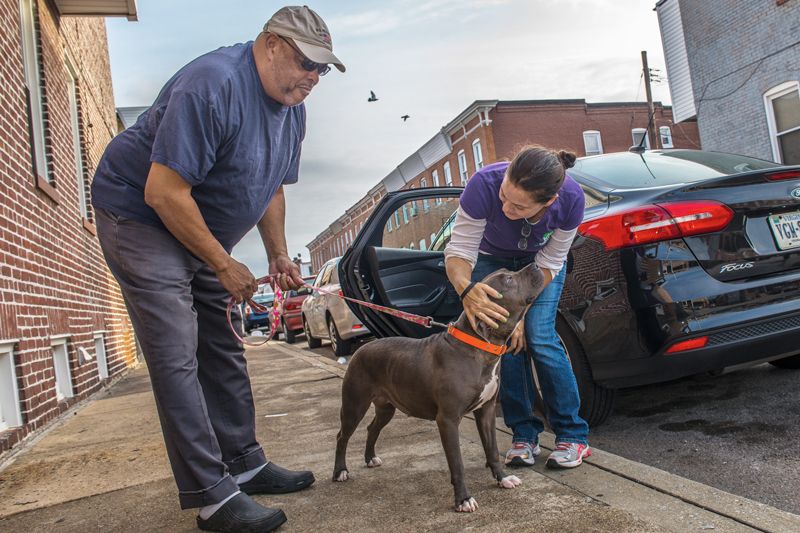
In its first 13 months, through December 2015, CCC arranged spay/neuter surgeries for 236 pets in Baltimore. This year, it plans to arrange more than 400 (and had done 86 through April). But that’s not all it does: By creating relationships and building trust, CCC is bringing information and resources to a low-income community.
If that sounds similar to the HSUS Pets for Life (PFL) program, it’s no coincidence. In her role as director of insights for Illume Communications, Pruitt worked with The HSUS as it developed PFL, then decided she wanted to start a similar effort in her city.
“We talk about ourselves as a social justice program,” she says. “We are community organizers; we are animal advocates.”
Pruitt wasn’t involved in animal welfare at all until 2008, when The HSUS hired Illume, where Evans is CEO and creative director, to bring its marketing expertise to the Gulf Coast Spay/Neuter Campaign, the HSUS post-Katrina project that led to the creation of PFL.
Illume still consults with PFL, but that wasn’t enough for Pruitt. Though she had no previous aspirations in animal welfare, the poverty in the Gulf Coast and the high euthanasia rates were eye-opening for the Illume team. And after traveling to communities across the country with PFL, Pruitt wanted to know what was going on in Baltimore. With her PFL experience, she was uniquely positioned to find out, and to start a nonprofit addressing the issues.
She’s found out what most people who get involved in PFL-style work discover: Investing in underserved communities by improving pet wellness can help the community as a whole. As more people and other organizations become aware of the work CCC does and the problems the neighborhood faces, they may be inspired to invest in the community too.
“It’s been a good way to expose other people to it in a way they can manage,” Pruitt says. “Everybody connects on animals.”
Amanda Arrington, director of PFL, says she wasn’t surprised that Pruitt wanted to start her own program. “She loves her Baltimore community, and she very much connected with the impact poverty can have” on people who love their pets dearly but lack access to resources to help care for them, says Arrington. Plus, “she’s always seemed most satisfied when engaging directly with people and their pets.”
Before getting involved in another program, Pruitt started to talk to other organizations, did a community assessment and even reread the PFL toolkit that she helped write. She and Kelley, her niece, launched CCC in 2014. Kelley, a law school graduate and an animal lover, had visited a PFL community with Pruitt and wanted to get involved in similar work.
The group received a Maryland state grant for 200 spay/neuter surgeries last year and won another grant for 2016. To complete this work, CCC relies on about seven volunteers.
To fulfill its spay/neuter goals, each Monday Pruitt brings a few animals to the Maryland SPCA clinic in Baltimore; once a month, CCC brings about 20 animals to the Spay Spa & Neuter Nook in nearby Bowie, Md. Weekends are for canvassing in McElderry Park, CCC’s focus neighborhood. Pruitt also likes to canvass on Mondays after bringing animals back home from the spay/neuter clinic, because people see her and are curious, she says.
“What y’all doing?” a man sitting on his stoop calls out. Pruitt and Kelley have just gotten out of the car to start canvassing, and Evans is following with a video camera. Pruitt recognizes the man—earlier in the day she saw him feeding birds outside.
After chatting, they learn that the man, Reggie, runs an outreach ministry at the Baptist church next door. He says he would love to have them come talk to the congregation about CCC.
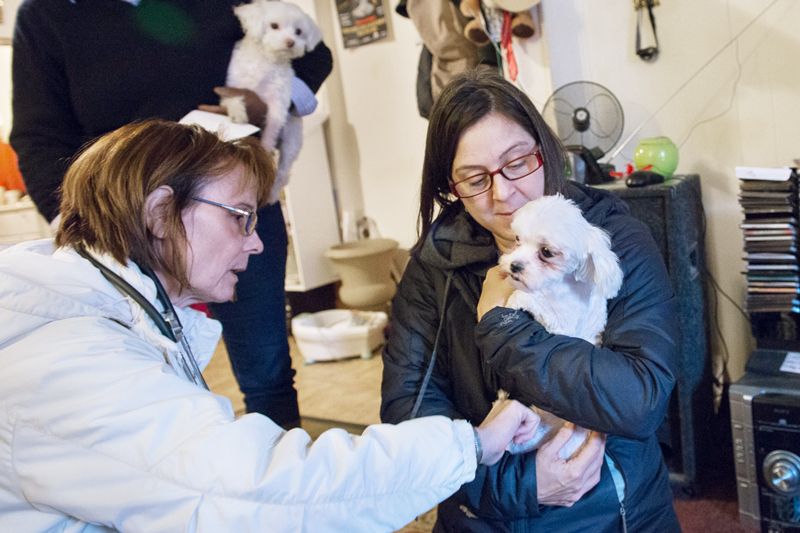
Making community connections like this is essential to the group’s success. CCC has connections with a church community garden, a family health center and more. “The reason we’re able to be successful as a spay/neuter program is because we build relationships and long-term trust and roots in the neighborhood,” says Pruitt.
While Pruitt and Kelley canvass, Evans is filming their work for a documentary produced by Illume that will feature volunteer work people are doing across the country. He and Pruitt hope that by including CCC in this documentary, they can show a different side of the city—not the unrest and crime shown in the news. (Evans recalls an exchange he had with a stranger who, on learning Evans was from Baltimore, told him, “My condolences.”)
Evans says that the news coverage misses the spirit in Baltimore neighborhoods like the one where CCC works (and PFL communities in other cities), which is often warm, welcoming and forgiving. “These communities have been let down by one organization, one politician after another. ... Why aren’t people saying ‘Go to hell—everyone like you, everyone that looks like you, has let me down a hundred times before’?”
The neighborly attitude that Evans describes is evident in just one hour of canvassing. One man invites the group into his house with his wife, son and cat, Bebe. Bebe, clearly less thrilled than his owners to have visitors, is hiding. But his family talks about him and agrees to get him neutered, even though they’re worried about having to part with him for the surgery.
Another man, Timmy, stops on the street to ask what Pruitt and Kelley are doing. He says his unaltered pit-bull-type Rex is family, and he wants him to have at least one litter. Pruitt doesn’t push—just talks to him and writes down his contact information. She’ll follow up with him later, just like she’ll follow up with Blue’s owner to get him a vet visit and make sure he’s healthy. Situations don’t always have a quick fix; some take more time and effort.
“Building that kind of day-to-day relationship and trust, and inspiring and empowering people to do what’s best for their pets, you don’t get the instant gratification of saying, ‘OK, we spayed and neutered 1,200 animals this month,’” says Evans. But being in a neighborhood and investing in it can create long-term change, he says. “It’s not just about spay/neuter.”


